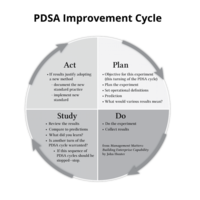Posts selected fromManagement Blog - Engineering Blog - Investing Blog and other blogs - Applying Deming’s Management Ideas at the Great Plains Coca Cola Bottling Company
The difficulty in changing is often mostly about our psychology (not the technical difficulty of operating under changed systems and processes after making adjustments to adapt to take advantage of new opportunities).
...
Results matter but within a context of the process. If I double profits by wagering all the cash we can borrow on the roulette wheel that result isn’t a sign that we are doing much better. Using data wisely requires understanding what the data tells you and what it does not tell you. continue reading: Applying Deming’s Management Ideas at the Great Plains Coca Cola Bottling Company - Psychology Often Drives Decisions Rather Than Rational Thought
I think that the primary thing to remember is that often people's actions and decisions are guided by psychology rather than thoughtful deliberation and choosing the most sensible option (given that person's desires). What this means is you can't expect rational decision making to guide others decisions and actions. You are often better understanding common psychology and how that impacts decision making.
...
There are 2 reasons this is important: first you are likely making decisions this way and can improve your decision making by understanding how you are making decisions. And second if you are trying to influence others understanding how they make decisions is important. continue reading: Psychology Often Drives Decisions Rather Than Rational Thought - Avoiding Difficult Problems
Coping with this issue (of avoiding unpleasant, systemic and long term rather than acute problems) is one of the things that separates great corporate culture from decent or bad corporate culture.
If there are fairly obvious or fairly easy improvements those would likely be acted on. There are, rarely, but still sometimes, instances where those vocal or politically powerful individuals who would lose out in a fairly obvious improvement will prevent action.
...
I am not convinced there are not ways to improve the situation. And I am pretty confident it is important enough to try. And I believe (though I might be wrong) with a concerted effort of knowledgable people improvements that would make a big difference in the quality of life could be achieved. I am not so certain those people involved in leading the effort would be seen in great lights though even if they "succeed." People are much more likely to remember negative consequences to them personally, even if they gain much more than they lost overall. continue reading: Avoiding Difficult Problems - Give People Enough Rope (and the Right Rope) to Succeed
 You want systems that let people take on challenges without too many restrictions but with enough support and training that you don't leave them hanging.
...
the ropes should suit their situation. A tightrope over a chasm is fine for a trained acrobat with a balancing pole. It is foolish for someone without the right training or tools. They would be better served with something else - a rope bridge with railings. continue reading: Give People Enough Rope (and the Right Rope) to Succeed - What Loss Will a Business Suffer Due to a Dissatisfied Customer?
You can’t know how much a dissatisfied customer will cost your business in the long run. You can make statistical judgements about how costly dissatisfied customers are to a business but those are loaded with many guesses. They can give a general indication of the magnitude of the costs but they are largely guesses, not something you can measure.
Sometimes a business largely gets away poor quality for a long time. The customer doesn’t change behavior, doesn’t complain to others and doesn’t punish the company in the long term. But you never know when one small failure will cause the luck to run out and turn a customer against the business and costing it dearly. continue reading: What Loss Will a Business Suffer Due to a Dissatisfied Customer? - CEO’s Given Lottery Sized Payouts
Today, in the USA, CEOs are basically win the lottery when they start and then either win some more and stay or don’t win and are let go. The lottery performance appraisal aspect Deming talked about (rewarding whoever random variation or macro economic and micro economic trends smiled upon during the period). So if a market (housing, oil, steel, investment banking, microchip, hotel…) is booming why give all the CEO’s in that market huge payoffs? continue reading: CEO’s Given Lottery Sized Payouts - Psychology – Managing Human Systems
People are not cogs in a machine. Everyone brings extraordinary talents and abilities to the organization. Dr. Deming sought to maximize the value people bring to the organization. This requires giving them pride in their work, freedom to use their brain, tools to be effective and systems that allow people to practice continual improvement.
Creating an environment where people flourish is key to Deming’s thinking. Deming understood what John McGregor put forth in the Human Side of Enterprise (1960) that people have an innate desire to take pride in what they do. Management’s job was to allow people to fulfill this need, not to attempt to manipulate behavior through external motivation. continue reading: Psychology – Managing Human Systems - The Quality of the Entire Customer Experience
 Product quality, in many ways, has been raised in the last few decades and this naturally results in raised expectations. This pattern was well known in the 1960s (and before). Kano’s theory of customer satisfactionexpressed how new features moved from being “delighters” for customers initially and eventually became minimum expectations (you gain no credit for delivering them but will upset customers if you fail).
It is also true that raising the overall customer experience is more difficult than raising product quality (due to the nature of the systems that deliver the results in each case).
I do think there is truth to the idea that customers have raised expectations for businesses to improve the entire experience. Customers are less willing to accept excuses about how the provider is not responsible for various aspects of the experience... continue reading: The Quality of the Entire Customer Experience - Toyota Execution Not Close to Being Copied
- Cool Workspaces
 - Shared Principles for Managing People Engaged in Diverse Tasks
 ...I do agree that the system within which people are operating determines how they must be managed. There are definitely features of software development that are significantly different than manufacturing scalpels or basketballs or tables. As there is a difference between a surgical team in an operating room, road construction, mining, editing books, investment banking, manufacturing industrial robots, researching new drugs, manufacturing drugs, teaching in a university, maintaining plane engines, coaching an athletic team...
I see universal principles of management (respect for people, customer focus, continual improvement...) that cross all different human enterprises. How those principles should be manifest in a particular situations depend on the work being done, the management system that is in place, the individual people involved, the specific focus of the effort right now... The way those principles are manifest will look very different in all the varied types of organizations we create and the different work and processes used within those organizations.
... continue reading: Shared Principles for Managing People Engaged in Diverse Tasks - Iterative Customer Focus
Like many of Deming’s ideas the idea of iterative customer focus can seem too simple to be very powerful. But in fact that idea is extremely powerful. Those familiar with agile software development can see the idea of delivering working software quickly and iterating based on actual customer use illustrated in Dr. Deming’s “new way” iterative cycle shown in his paper published in 1952.
The importance of learning about non-users is something that still today is often overlooked...
I have written about importance of customer focus to Deming’s ideas in several previous blog posts, including: Customer Focus with a Deming Perspective, User Gemba and the most important customer focus is on the end users. continue reading: Iterative Customer Focus - Department of Defense Lean Six Sigma
Gordon England, the Deputy Secretary of Defense, signed a directive establishing policy and assigning responsibilities to institutionalize the Lean Six Sigma effort throughout the USA Department of Defense. continue reading: Department of Defense Lean Six Sigma - Change Management – Post Change Evaluation and Action
 ...it is always critical to include process checks to evaluate if the improvement works as intended. It is amazing how often changes are adopted without any process to evaluate the effectiveness of the change. This leads to many problems and creates conditions where the rate of improvement is very slow.
The rate of improvement is increased by improving how the organization improves. Monitoring the impact of changes is needed for this reason (to learn what is working well systemically and what weaknesses exist in how the organization is improving) as well as to make sure each change does actually improve results as expected. continue reading: Change Management – Post Change Evaluation and Action - Understanding and Using Data: Waffle House Example
...The Waffle House closure data is based on actually closing based existing conditions while warnings and evacuation recommendations are based on predictions about the weather and the impacts those will have on locations. The warnings are necessarily predictions (to be useful for the whole community they need lead times to take action) where the Waffle House has more flexibility and the organization has managed their system to be more capable of adapting to harsh conditions. There is a real similarity with designing a agile software development process that is able to be more flexible and react quicker than old "waterfall" style organizations that have to predict far in advance and adapt slowly as conditions change... continue reading: Understanding and Using Data: Waffle House Example
|